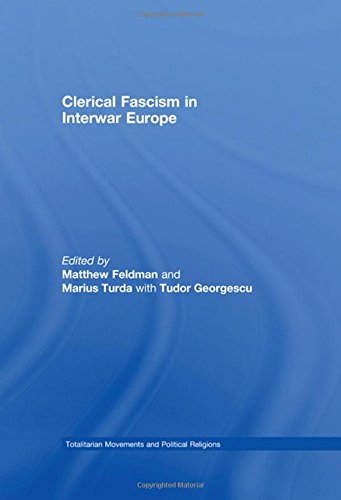

Most ebook files are in PDF format, so you can easily read them using various software such as Foxit Reader or directly on the Google Chrome browser.
Some ebook files are released by publishers in other formats such as .awz, .mobi, .epub, .fb2, etc. You may need to install specific software to read these formats on mobile/PC, such as Calibre.
Please read the tutorial at this link: https://ebookbell.com/faq
We offer FREE conversion to the popular formats you request; however, this may take some time. Therefore, right after payment, please email us, and we will try to provide the service as quickly as possible.
For some exceptional file formats or broken links (if any), please refrain from opening any disputes. Instead, email us first, and we will try to assist within a maximum of 6 hours.
EbookBell Team

4.7
36 reviewsThis edited volume arose from an international workshop convened in 2006 by Feldman and Turda with Tudor Georgescu, supported by Routledge, and the universities of Oxford, Brookes, Northampton and CEU (Budapest). As the field of fascist studies continues to integrate more fully into pan-European studies of the twentieth century, and given the increasing importance of secular ‘political religion’ as a taxonomic tool for understanding such revolutionary movements, this collection of essays considers the intersection between institutional Christian faiths, theology and congregations on the one hand, and fascist ideology on the other.
In light of recent debates concerning the intersecting secularisation of religion and (usually Christian-based) the sacralisation of politics, "Clerical Fascism" in Interwar Europe approaches such conundrums from an alternative perspective: How, in Europe between the wars, did Christian clergy, laity and institutions respond to the rise of national fascist movements? In doing so, this volume provides case studies from the vast majority of European countries with analyses that are both original in intent and comprehensive in scope. In dealing with the relationship of various interwar fascist movements and their respective national religious institutions, this edited collection promises to significantly contribute to relevant academic historiographies; and as such, will appeal to a wide readership.
This book was previously published as a special issue ofTotalitarian Movements and Political Religions.